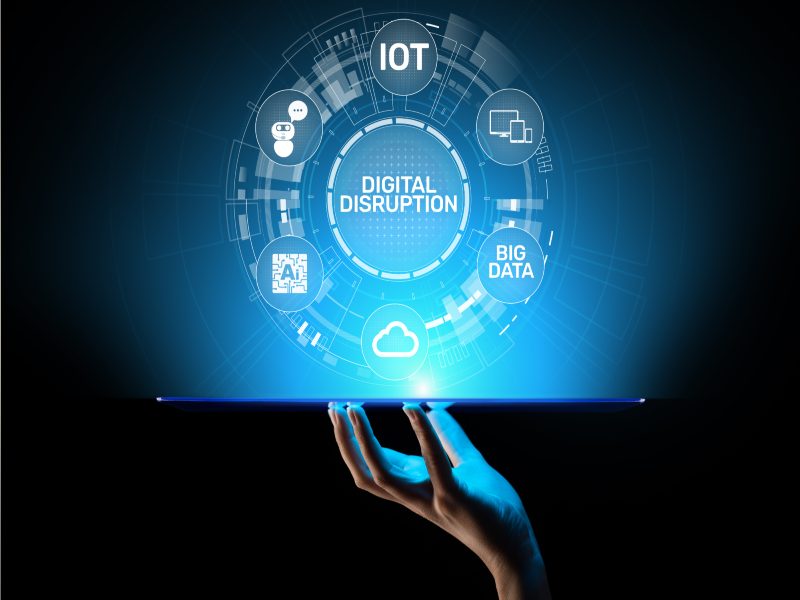How IoT Revolutionises Metering for Utilities in Developing Nations
- Time of issue:2022-03-10 10:51:29
- Views:
How IoT Revolutionises Metering for Utilities in Developing Nations
- Time of issue:2022-03-10 10:51
- Views:

As smart metering spreads worldwide, innovation in the sector is coming via new business models. Especially in developing countries that are mandating smart meter usage to improve efficiencies and combat environmental concerns, while providing a better customer experience. In this article, we will be looking at the role of IoT networks in the successful implementation of smart metering in developing countries, with a special emphasis on India.
The recent COP26 conference highlighted government-led initiatives which are forcing change as we face a resource crisis, with water shortages, energy scarcity, and overall global warming. Among these activities, smart meters feature as a way to monitor and control utility use.
While mature markets are still digitising or retrofitting advanced metering infrastructure (AMI), developing countries are starting from scratch and focusing on delivering a utility and collecting payment. In the UK, for instance, a mature and deregulated market, utilities such as Northumbrian and Welsh Water are exploring the Internet of Things (IoT) enabled smart meters to reduce leaks and bills.
IoT has been pivotal to the successful rollout of smart meters. IoT devices and networks enable the wireless transfer of data at low cost and over long distances with ultra-low energy consumption. Smart metering is in fact one of the most widespread examples of IoT products in action.
Our teams are already working in developing countries on IoT smart metering implementation. For instance, Sabesp, one of the largest water and sewage service providers in the world, has successfully rolled out 100,000 smart water meters. The project, which is one of the largest in Latin America, introduces water consumption telemeasurement in Sabesp’s 100,000 largest consumers in the Metropolitan Region of São Paulo. In Europe, HEP-Plin, part of the HEP Group, the national energy company in Croatia, is deploying Byte Lab retrofit smart devices to digitize their gas meters.
Smart meter development in India
Against the backdrop of wider global smart metering adoption, we welcome the Indian government’s plans to ramp up metering. In the Smart Metering National Programme £29 billion ($39 billion) has been allocated to smart metering in the budget for FY-22; 250 million conventional electricity meters are to be replaced by smart meters over the next five years.
Water supply and distribution is a state concern, with every state following an independent procurement and deployment strategy. For example, Maharashtra leads the way with over 500,000 smart water meters installed in the large cities of Pune and Nagpur. While Rajasthan has allocated approx. £39 million ($53 million) to replace all existing meters in the city of Jaipur over the next three years.
In terms of gas, pipeline natural gas (PNG) and compressed natural gas (CNG) distribution are new to the country, with only 4 – 5% of the population receiving supply. However, there is a significant focus by India’s Ministry of Petroleum and Natural Gas to accelerate the adoption of gas as a primary fuel for domestic, automotive and commercial consumers. Key figures include: 6.6 million PNG connections as-on-date; 50-55 million new PNG connections over the next six years.
Even though smart metering initiatives are already underway to minimise the attrition of customers and increase efficiency, water utility metering is a zero-tech business, with manual meters and readings and pipeline gas being a new phenomenon. These utilities, however, are set to grow exponentially as a result of government mandates. For instance, there will be a move in domestic gas supply away from LPG, and cities need to provide at least 200 litres of water per person per day.
Smart metering, digitisation and automation will be the only way that utilities operators will meet government targets. While IoT-based smart metering is a mature solution with a well-understood technical value proposition, the utility sector needs to adopt new business models and strategic partnerships, that simplify adoption and integration.
Utilities in India are looking for a flexible, fit for purpose and technology-agnostic solution while deciding on suppliers. Their concerns include integration and field deployment challenges linked with adopting an AMI solution; inadequate IT infrastructure which requires a parallel upgrade; and finally, how to measure impact on customer lifetime value and operating margins.
IoT as part of the ecosystem
In terms of innovation in smart metering in India, and for that matter other developing nations, this centres on the business model and the overall solution that is being delivered to customers. Utilities are looking for either hybrid CAPEX/OPEX or managed services models localised to their country. IoT networks or device manufacturers are key parts of the ecosystem.
From this standpoint, IoT firms should be strongly advocating the overall transformation of the utility, rather than just connecting the meter to the cloud. Working in partnership is the only way to build a cohesive end-to-end solution that encompasses the utility, device manufacturers, software companies, billing platforms, ERP systems, customer service and more. For example, we are working with a large industrial group, Raychem, a manufacturer of gas meters with the largest footprint for gas meter install base in India. Through this partnered service, IoT networks bring last-mile connectivity.
‘Streamlining Meter to Cash process’ is an attractive business model, which apart from the meter and connectivity also includes the meter data management (MDM) software, CRM application, personalized mobile app and customer service and support ticketing software.
Our team in India has been working with stakeholders in the utility supply chain to bring a meter-to-cash solution to gas distribution companies, in the first instance. Our public network rollout is happening currently, with first base stations being installed in Gujarat, Karnataka and soon in Tamil Nadu.
This end-to-end approach favoured by utilities enables the reduction of recurring IT costs, while network costs are shared across multiple clients and projects. There is also the ability to increase revenue streams while delivering a safe and reliable service over the customer lifecycle. In India, IoT networks work closely with the entire ecosystem, from meter OEMs, ISVs and System Integrators to bring this proposition to bear.
While some degree of best practice can be adopted from other countries, smart metering rollouts are all at different stages, using various architectures and devices, so any IoT-powered smart metering solution needs to be tailored. While Nippon Gas Co gave 1,000,000+ gas meters across Japan a smart makeover and SHV Energy is rolling out a global LPG tank level monitoring solution, these are not comparable to efforts in India. In India, currently, communications only need to be one way from the meter to the cloud.
IoT networks and device manufacturers can be seen as digital transformation partners. Connectivity is a small part of the solution but is a key part of the journey that starts with AMI. Metering is step one in the journey. Once the value of IoT is realised, then utilities can explore its benefits further. For instance, when distribution companies lay kilometres of pipeline embedded in the ground, these are not visible, but still need to be maintained. There will need to be solutions for leak detection (as per our UK example), track layout and more. There will be an opportunity to digitise every part of the utility.
IoT technology in itself is an enabler for the delivery of smart metering on the subcontinent. As the market matures, buyers will start to differentiate on the technology level. Today, the focus is on a solid business model with operational efficiency. In the future, businesses will consider connectivity benefits more.
The future looks bright for smart metering in India. The utilities will lift some of the economic burden from the government, with correct meter readings and reduced subsidies. These state-owned utilities will become profitable one day while also meeting environmental targets. While Indian citizens benefit as smart metering improves customer behavior. It encourages efficient use of non-renewable energy, especially with personalised apps to track and monitor usage, compelling customers to behave more intelligently and maturely. A win-win situation for all concerned.
Source: Smart Energy International
Relevant Information
Zhengzhou Anran I&C Technology Co.,Ltd.
Tel: 0086-371-68629564
E-mail: global.sales@zzanran.com
Address: The National University Science Park, No.11, Changchun Road, High&New Technology Development District, Zhengzhou
Copyright Zhengzhou Anran I&C Technology Co., Ltd.




 0086-371-68629564
0086-371-68629564

 Message
Message 




